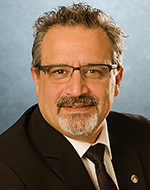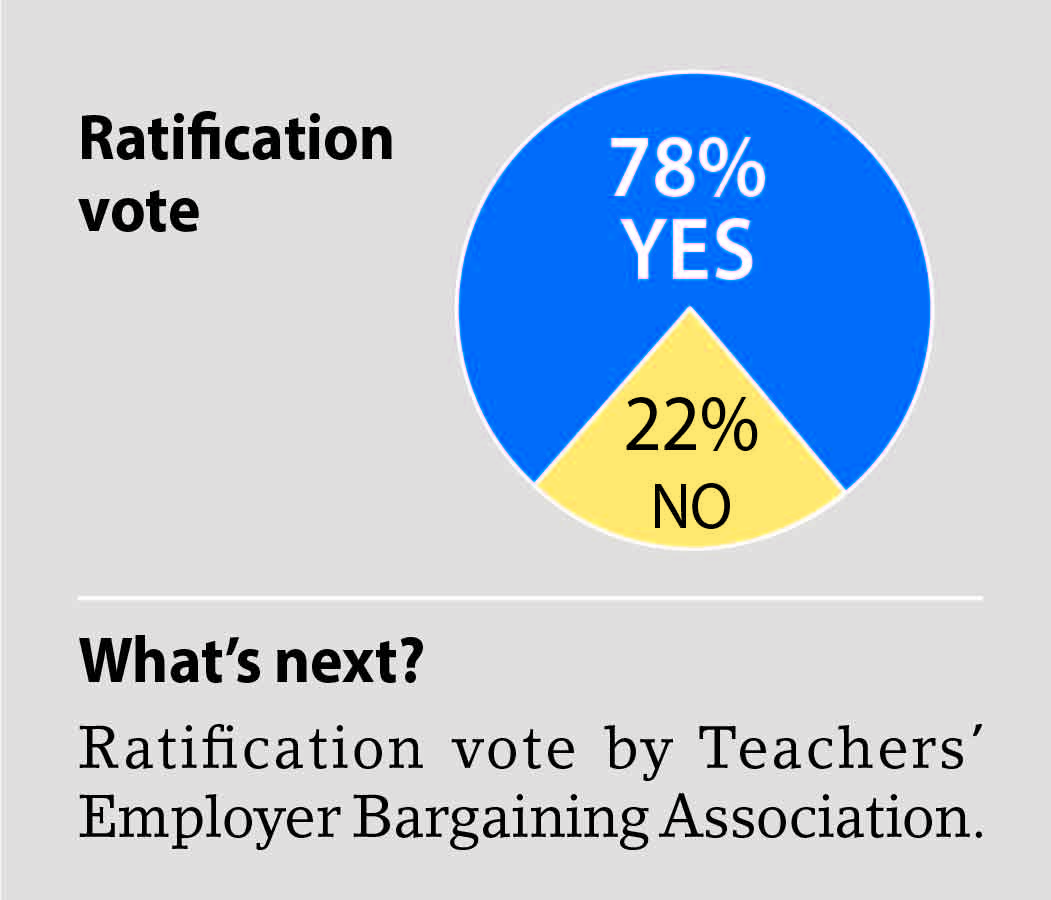Page Content
Local bargaining can begin following employer ratification
Alberta teachers have ratified a two-year central table agreement, opening the door for the commencement of local bargaining.
 |
| Greg Jeffery, chair, the Alberta Teachers’ Association’s Central Table Bargaining Committee |
In an online vote conducted from May 11 to 14, teachers voted 78 per cent in favour of accepting the deal, which came after months of negotiations.
“I’m pleased that teachers see the benefits of this agreement and have voted to accept it. A lot of hard work has gone into these negotiations and we have achieved some historic improvements for teacher collective agreements,” said Greg Jeffery, chair of the Alberta Teachers’ Association’s Central Table Bargaining Committee.
The deal contains caps on instructional and assignable time as well as teacher autonomy over professional growth plans. There are no salary increases in the agreement, but “me too” provisions will provide teachers with salary increases if other large public sector unions secure pay increases in their upcoming negotiations. The agreement also
 |
Sandra Johnson,
Teacher Welfare co-ordinator |
includes a $75 million Classroom Improvement Fund (CIF) that will distribute funds according to locally established priorities.
Reached under a new bi-level model created by the NDP government, the central table agreement is also subject to ratification by the Teachers’ Employer Bargaining Association (TEBA), which is expected to vote when it meets later this month.
If approved, local bargaining will begin and the central table agreement will be incorporated into the 61 collective agreements between the Association and individual school boards. If TEBA does not ratify, TEBA and the ATA will proceed to mediation, said Central Table Bargaining Committee member Sandra Johnston, who is the coordinator of the ATA’s Teacher Welfare program area.
 |
Mark Ramsankar,
ATA President |
“In a time when there is absolutely no money available for salary increases, we were able to make gains that will cost the school boards very little yet improve the working lives of teachers,” Johnston said. “Once the employer ratifies, we will move ahead with local bargaining and CIF implementation discussions. We will also start the school year with new instructional and assignable time protections in place for every single teacher in the province.”
Association president Mark Ramsankar said he’s hopeful that
TEBA will ratify the agreement, which he called the result of teacher voice in action.
“Teacher voice is such a huge part of collective bargaining and our Association,” he said. “Teachers set the agenda and they decide the final result. Teachers have had their say and now we have an agreement that is acceptable to teachers.” ❚

